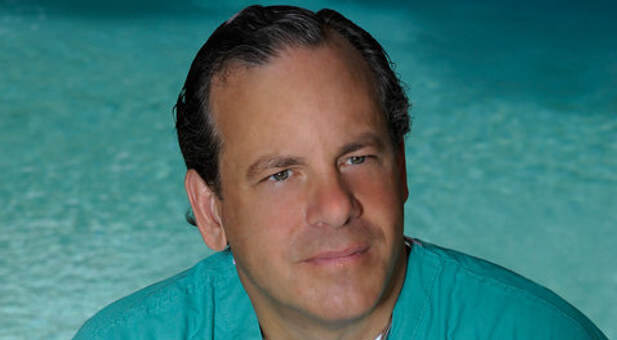Warning: Heart attacks do not always happen “out of the blue.” Your body could warn you of an impending heart attack days, weeks, even months before one strikes.
That’s why you owe it to yourself to read this important letter about these crucial warning signs. Discover the four things that happen right before a heart attack—perhaps even save your own life or the life of someone you love.
I’m Dr. Chauncey Crandall. I’m a Yale-trained physician and an interventional cardiologist with a busy practice in Palm Beach, Fla. Because of my unique approach and excellent track record, people fly in from around the world to see me.
I’m not telling you this to brag. I believe God has given me a special role to play. I’m meant to save lives through my medical practice, and also to share the life-saving information I’ve gleaned from decades of research, study, cultural travels, and cutting-edge cardiovascular practice (and even some direct personal experience with heart disease).
I know that heart disease—and, of course, heart attacks—can be prevented, and that’s why I’m so passionate about writing Heart Health Report for Newsmax every month.
And believe me, I understand . . .
Doctors mean well, they really do. But they’re often too busy to properly educate their patients, or even too busy to stay abreast of the latest medical advances in the field.
But sadly, heart disease is still the No. 1 killer of Americans, responsible for nearly one-third of all deaths. It kills more men and women each year than all cancers combined, including breast cancer.
And shockingly, most Americans over age 35 already suffer from heart disease, whether they know it or not. Yes, heart disease often starts early in life, and then slowly progresses until one day it manifests as a very serious problem, even a fatal one.
But here’s the good news . . .
Heart disease is completely unnecessary because it can be:
- Prevented
- Even reversed
By all rights, I shouldn’t be half as busy as I am. And that’s because heart disease should be rare, not common.
The only difference between a heart attack and a stroke is which artery is blocked—the one that feeds your heart, or the one that feeds your brain.
Both can be deadly or debilitating for life. But we’re not going to let that happen.
1. Chest pain. Of course, you’d expect this. But what you probably don’t know is that a serious problem coming from your heart can manifest as pain far away from your chest.
What’s highly uncommon is what cardiologists jokingly call “the Hollywood heart attack”—that’s when an actor clutches his heart and dramatically falls to the ground.
Frankly, that kind of heart attack is rare.
There are half a dozen different places you can feel pain, or an unusual sensation, and most of them would trick you into believing you were having anything but a heart attack. Again, that’s why heart disease is called “the silent killer.”
2. Nausea and sweating. Here, again, most people wouldn’t associate these things with a heart attack. They might think they ate something that didn’t agree with them, or that they are coming down with the flu, or are simply stressed.
In our extended report, Heart Health Report, you’ll get the full story on what a heart attack is, and all the different feelings you can experience beforehand. This information can literally save your life.
It’s really important because …
These things often occur a few days or even weeks before the onset of the heart attack or stroke, and at other times just a few minutes before. So knowing them will often give you the necessary time to take action.
If you experience one or more of these four things, time is of the essence.
Regarding any cardiac event, the sooner you get to the hospital, the greater chance you’ll have for survival, and the less damage you’ll do to your heart.
Other signs will seem like breathing or digestive issues, and they can be tricky. For this reason, I’d prefer you read about them in full detail in the Heart Health Report, which you can subscribe to here. I want to make sure you know all the warning signs and their subtle variations.
Chauncey W. Crandall, M.D., F.A.C.C., chief of the Cardiac Transplant Program at the world-renowned Palm Beach Cardiovascular Clinic in Palm Beach Gardens, Fla., practices interventional, vascular, and transplant cardiology. Dr. Crandall received his post-graduate training at Yale University School of Medicine, where he also completed three years of research in the Cardiovascular Surgery Division. Known as the “Christian physician,” Dr. Crandall has been heralded for his values and message of hope to all his heart patients.
To get Dr. Chauncey Crandall’s monthly newsletter, click here.












